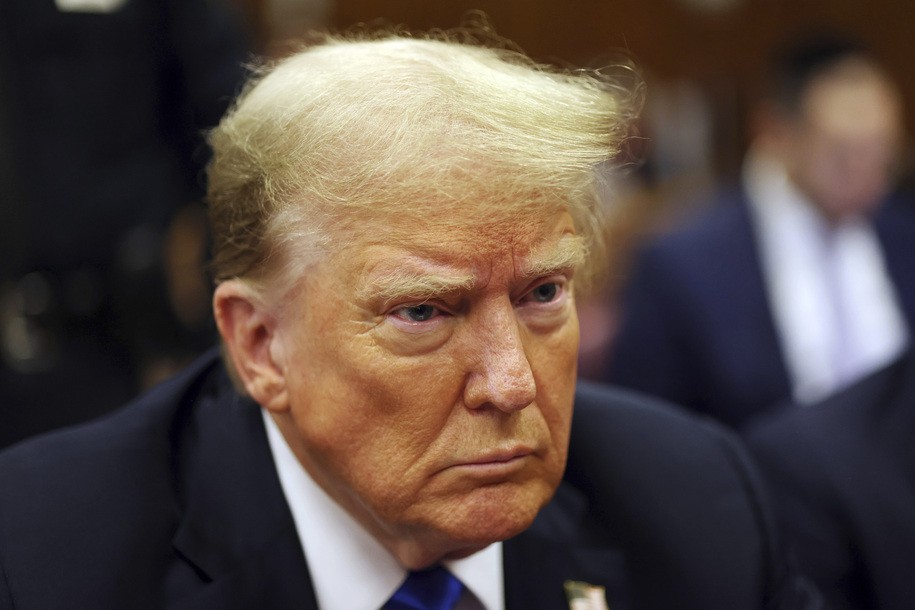Things feel pretty bleak right now as we stare down the barrel of another Trump presidency.
America lurched to the right and elected a man facing felony charges for election interference in Georgia and Washington D.C. A man who got his classified documents charges tossed out by his exceedingly solicitous appointee, Judge Aileen Cannon. A man already convicted of 34 felony counts of falsifying business records. A man who currently owes $450 million in civil penalties for inflating the value of his assets. A man who currently owes E. Jean Carroll $88 million for defaming her after a jury found that Trump did indeed sexually assault her. And now, a man who can make much of this all disappear.
So what happens now?
In special prosecutor Jack Smith’s Jan. 6 case, Smith had to basically start that case over after the conservative majority of the United States Supreme Court gave Trump wide-ranging immunity from criminal charges. Smith refiled the indictment, omitting all references to things the Supreme Court decided were official acts, such as trying to get Justice Department officials to help overturn the election.
A month before the election, U.S. District Court Judge Tanya Chutkan unsealed Smith’s 165-page motion about Trump’s immunity claims, showing that Trump’s attempts to overturn the election were unofficial acts outside his role as president.
Trump’s filing in opposition, where he would need to show that, say, not caring whether his pet rioters hanged Mike Pence, was an official presidential act, isn’t due until Nov. 21.
In theory, he still needs to file that since he won’t yet be president. But it doesn’t matter because once he takes office, he’s just going to fire Smith.
It’s unclear whether Trump could order the DOJ to dismiss charges against him, but he has previously discussed pardoning himself, so continuing the prosecutions would seem futile. Additionally, Smith has already started winding down both this case and the classified documents case, the dismissal of which Smith had recently appealed to the 11th Circuit.
It’s maddening to see Smith and the DOJ essentially comply in advance by dropping the cases. However, they’re stuck with a 2000 opinion from the DOJ’s Office of Legal Counsel saying sitting presidents can’t be indicted or prosecuted.
There may be a savvy reason for Smith to wind these down quickly, however. As special counsel, Smith must file a report detailing his findings with the attorney general, Merrick Garland. Garland has already said he’d make most of it public. This will likely be the only way people will ever know the full scope of what Trump did.
The Georgia racketeering case is in state court, which makes it marginally harder to dispose of. Trump can’t pardon himself for state-level charges, nor does he have any authority over state prosecutors.
The problem is that same 2000 opinion: Sitting presidents can’t be prosecuted or indicted. That document is just an opinion, not a law, and a state court judge might decline to honor it.
But then there’s a different problem. The Supreme Court, in Clinton v. Jones, indicated there would be concerns prosecuting presidents in state courts, in part because of the possibility of “local prejudice.” As annoying as this might be regarding Trump, that makes sense. You don’t want a world where a Florida under Ron DeSantis could criminally charge President Joe Biden and haul him into Florida state courts mid-presidency.
The Georgia case got bogged down by District Attorney Fani Willis’s ill-advised relationship with one of her special prosecutors. That misstep delayed the case, which is now stuck in the Georgia Court of Appeals as they consider Trump’s argument that Willis should be removed.
But even if that court lets the case proceed, Trump can still raise his immunity argument. So, it’s tough to see how the Georgia case continues.
Two silver linings: Since Trump can’t pardon state convictions, those co-defendants who already pleaded guilty, like Jenna Ellis, are stuck with their criminal records, and nothing is stopping Willis from continuing to prosecute anyone who isn’t Trump.
After his conviction on 34 felony counts in New York state court over hush money paid to Stormy Daniels, Trump was supposed to be sentenced back in September. The judge granted Trump’s request to push the sentencing back until after the election, rescheduling for Nov. 26.
As with Georgia, since this is in state court, Trump can’t just make it go away or pardon himself. Legal experts, though, are already saying it’s unlikely a judge would actually sentence the president-elect. Hauling Trump into court during the transition of presidential power is tough to fathom. Delaying the sentencing until after Trump becomes president is also tough to fathom. Trump has also raised the immunity defense here, and Judge Juan Merchan is supposed to rule on that on Nov. 12. If Merchan denies the immunity defense, though, Trump can appeal that immediately.
As appealing a fantasy as it is, Merchan is not going to throw the sitting president in jail. So, does the case just get dismissed? Can it hang out until Trump is out of office again? No one really knows!
As far as the civil cases, Trump has no power, just by becoming president, to make the fines and damages go away. Those were imposed in civil cases, so none of the concerns about prosecution arise. No one will be surprised to learn that Trump has appealed these verdicts.
In the Carroll case, a federal appeals court heard arguments in September about whether the trial judge erred by allowing testimony from other women whom Trump had allegedly sexually abused and by letting jurors see the infamous “Access Hollywood tape.”
If the appellate court upholds the decision, Trump could then ask his pals on the Supreme Court to hear the case. If the appellate court reverses, that could result in a new trial, this time without that evidence being introduced. But then it’s back to the fairly incomprehensible notion of a sitting president sitting through a trial, albeit a civil one.
In the civil fraud case, Trump’s argument that the penalty imposed was too big seemed to meet with some approval from the New York state appellate court, as did his argument that no real harm resulted from his habit of lying about his wealth to banks and insurers.
Given that several judges seemed more concerned with whether Attorney General Letitia James exceeded her authority, versus being concerned that Trump committed massive fraud, it is entirely possible the appellate court makes this all go away.
In all these cases, Trump’s main strategy was to run out the clock and hope to get reelected. His reelection keeps him out of jail, and may even keep more money in his pocket.
And in the end, as with seemingly everything around him, Trump will suffer no consequences.









